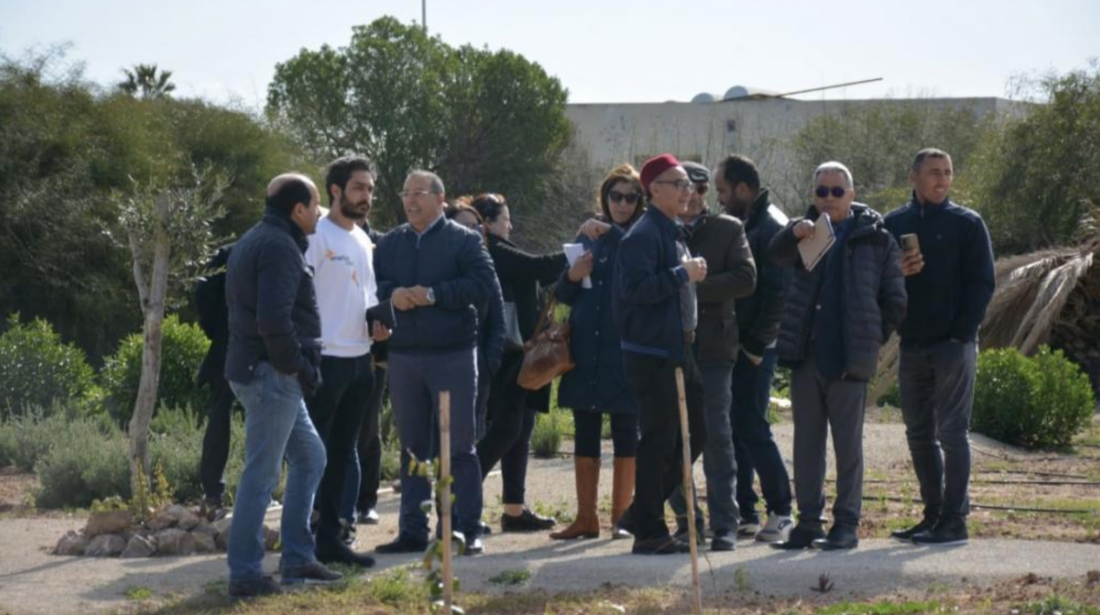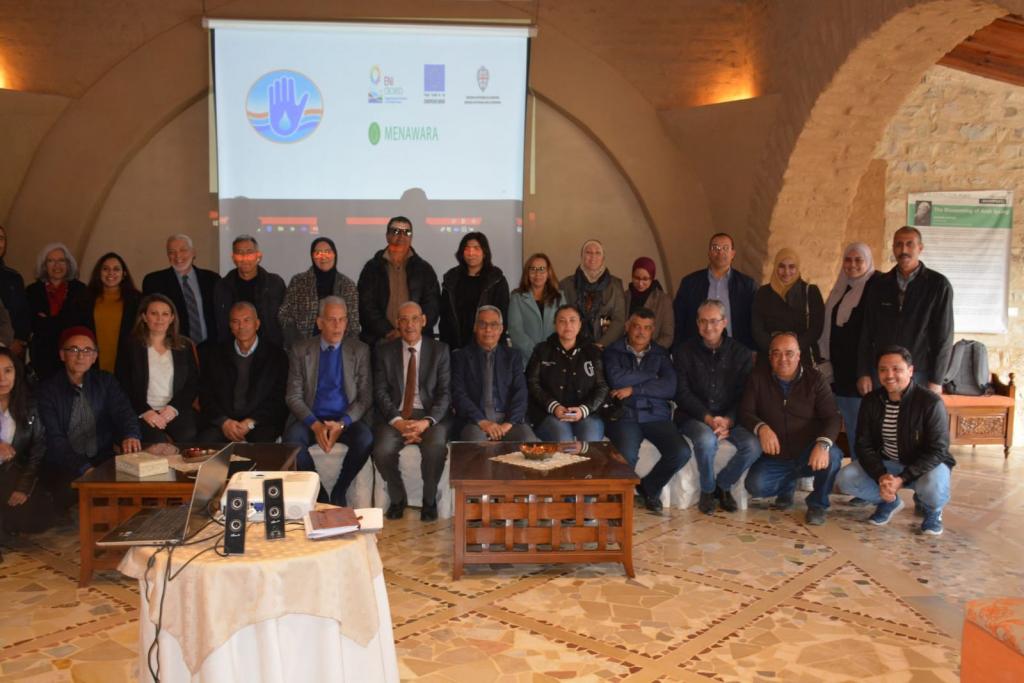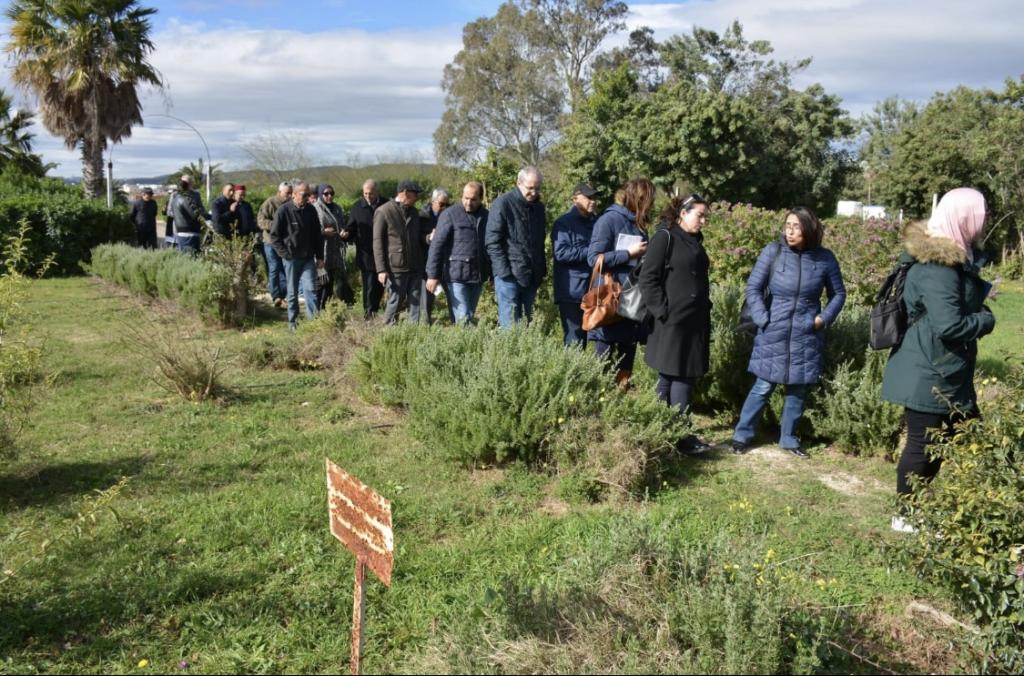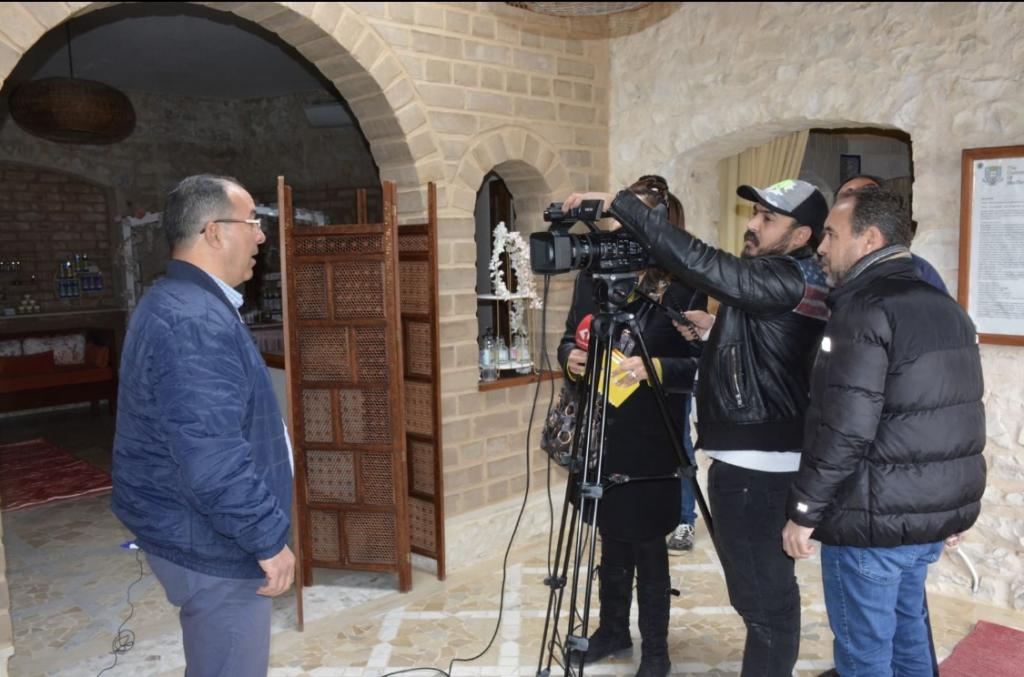MENAWARA consortium spearheads the safe re-use of treated waste water in Tunisia.

Tunis, March 5th
The Tunisian National Sanitation Office (ONAS) and partner of MENAWARA has presented its progress on the MENAWARA project for the safe re-use of treated wastewater at an Info Day held in Tunis.
Researchers, engineers, and local stakeholders, shared their experiences after two field visits to the sites of Choutrana and Sidi Amor. They discussed the challenges of working with limited water resources , which is a daily reality for many Tunisians, who recently experienced water rationing from 2 to 6 am for the current period. The situation is not expected to improve with the arrival of summer and the dry season.
The initiative highlighted the critical situation of water scarcity in the country and the need to prepare for a range of different scenarios, including working on non-conventional water sources.
"As producers and distributors of treated waters, we took advantage of the Info day to outline a future vision in the context of water scarcity adaptation and mitigation" ONAS's Thamer Jaouadi noted. "the interest for the matter is high and we expect it will only grow considering the gravity of the matter. Researchers were very motivated after visiting the MENAWARA sites of Choutrana and Sidy amor, and realising there is a tangible, concrete impact of the project in the territory", he continued.

The MENAWARA project is pioneering the safe re-use of treated waste water, and its producers aim to create a consortium of stakeholders to deal with the issue. While each institute works independently, they are aiming to leverage the added value of shared goals. This is the first time an institute has had the capacity, network, and drive to take the project to the next level.
Jaouadi presented the progress of the initiative, including the creation of a protocol for research centers and other entities to contribute systematically. The consortium could also be open internationally and to civil society to work both at the local and international level.
Several research projects have been conducted on the quality of water, and the valorisation rate is only 20 percent, which is very scarce.
Out of the 291 million cubic meters of treated wastewater, only 53 million are re-used, 15 of which for agriculture, and the rest in other sectors.









